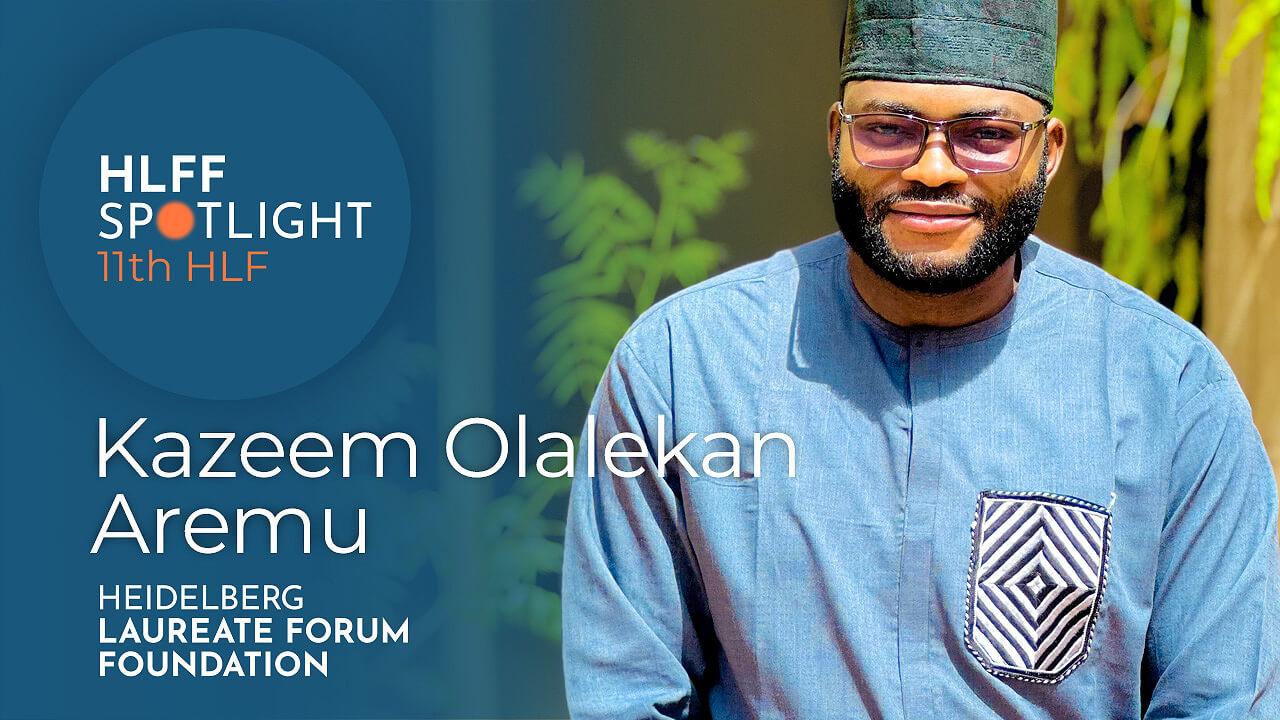Kazeem Olalekan Aremu
The Heidelberg Laureate Forum has a single purpose: To provide some of the brightest minds in mathematics and computer science with the space and time to make connections and find inspiration. The HLFF Spotlight series shines a light on some of the brilliant individuals attending the event.
Kazeem Olalekan Aremu is a dedicated mathematical scientist committed to teaching and research for human and capital development. Currently recognized as the Most Outstanding Early Career Researcher at Usmanu Danfodiyo University Sokoto in Nigeria, he specializes in optimization and fixed point theory, as well as computational graph theory, with a focus on knowledge transfer and impactful global research collaborations. He is attending the 11th HLF as a young researcher.
What first inspired you to pursue a career in your field?
My passion for teaching and research has always driven me. From my undergraduate days as a mathematics student, I found immense satisfaction in helping my peers and juniors tackle complex problems and simplifying challenging course modules for them. The joy I felt when they shared that my explanations had deepened their understanding was incredibly rewarding. This early experience solidified my desire to pursue a career where I could continue to facilitate knowledge transfer and contribute to the academic growth of others.
What has been your proudest moment in your scientific career so far?
My proudest moment in my scientific career was being honored as the Most Outstanding Early Career Researcher from 2019 to 2023 by Usmanu Danfodiyo University Sokoto, Nigeria, at the first ever University Research Award Ceremony on April 20th, 2024. This recognition filled me with immense pride and fulfillment, affirming that my dedication to academics and research has made a meaningful impact and is valued by my academic community.
What is the most exciting or meaningful development happening in your field right now and why?
One of the most exciting developments in my field is the integration of machine and deep learning techniques with optimization and fixed-point theory. Simple yet robust iterative algorithms traditionally used for solving optimization problems are now being applied to machine learning tasks, such as prediction and classification, using real-life datasets. This cross-disciplinary approach is opening up new possibilities and advancing both fields in significant ways.
What are you most excited about for the upcoming 11th Heidelberg Laureate Forum?
I am thrilled about the opportunity to meet and learn from the Fields Medalists and Laureates at the 11th HLF, whose groundbreaking contributions to mathematical sciences have been immensely influential. Being mentored by such esteemed figures is a rare and invaluable experience that I believe will inspire me to strive for even greater achievements. Additionally, I am looking forward to connecting with fellow young researchers in mathematical sciences from around the world, which could lead to lifelong research partnerships and an expanded professional network.
Links
